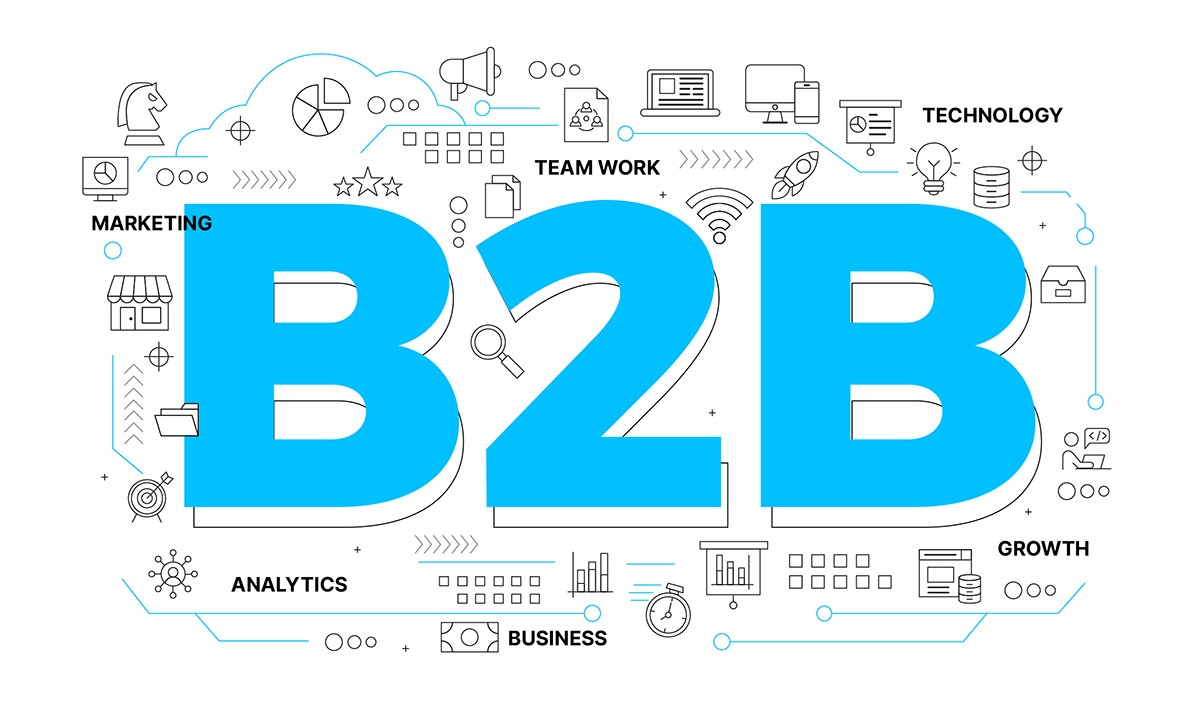
Does B2B Telemarketing Services Really Live up to the Hype?
April 26, 2024
AI-Powered ABM: The Key to Boosting Sales Efficiency in 2024
April 29, 2024
In the bustling business landscape of Singapore, where innovation thrives and competition is fierce, mastering the art of B2B telemarketing is crucial for businesses aiming to drive lead generation success. While the digital realm offers myriad avenues for reaching prospects, the personal touch and direct communication facilitated by telemarketing remain unparalleled in building meaningful relationships and closing deals. In this comprehensive guide, we’ll explore the strategies and tactics necessary to navigate the B2B telemarketing landscape effectively and achieve lead generation success in Singapore.
Understanding the Dynamics of B2B Telemarketing
B2B telemarketing is more than just making cold calls; it’s about initiating meaningful conversations with key decision-makers to identify their pain points, present tailored solutions, and nurture relationships over time. Unlike B2C telemarketing, which targets individual consumers, B2B telemarketing focuses on engaging with businesses and professionals. By understanding the dynamics of B2B telemarketing, businesses can leverage it as a powerful tool for lead generation in Singapore’s competitive market.
The Importance of Personalization
In a digital age inundated with automated messages and generic outreach, personalization has become paramount in B2B telemarketing. By tailoring communication to address the specific needs and challenges of each prospect, businesses can demonstrate genuine interest and credibility, ultimately increasing the likelihood of conversion. In Singapore, where relationship-building is highly valued in business interactions, personalized telemarketing efforts can set businesses apart from their competitors and foster long-term partnerships.
Leveraging Data Insights
Data is the backbone of effective B2B telemarketing campaigns. By leveraging data analytics and market research, businesses can gain valuable insights into their target audience’s preferences, pain points, and buying behavior. In Singapore, where businesses operate in diverse industries and sectors, understanding the nuances of each market segment is essential for crafting tailored messaging and positioning offerings effectively. Data-driven telemarketing enables businesses to prioritize prospects with the highest potential for conversion, maximizing the efficiency and effectiveness of their lead generation efforts.
Building Trust and Credibility
Trust is the currency of successful B2B relationships. In telemarketing, establishing trust and credibility from the outset is crucial for overcoming skepticism and objections. By positioning themselves as knowledgeable industry experts and trusted advisors, telemarketers can instill confidence in prospects and lay the groundwork for fruitful collaborations. In Singapore’s business landscape, where integrity and reliability are highly valued, building trust through transparent communication and consistent follow-up is essential for lead generation success.
Crafting an Effective B2B Telemarketing Strategy
Crafting an effective B2B telemarketing strategy requires careful planning, strategic execution, and continuous optimization. From defining target audience segments to developing compelling scripts and leveraging technology tools, each aspect of the strategy plays a critical role in driving lead generation success in Singapore.
Defining Target Audience Segments
The success of a B2B telemarketing campaign hinges on understanding the characteristics and preferences of the target audience. In Singapore, where businesses span a wide range of industries and sectors, defining precise audience segments is essential for tailoring messaging and positioning offerings effectively. By conducting thorough market research and segmentation analysis, businesses can identify high-potential prospects and prioritize their outreach efforts accordingly.
Developing Compelling Scripts
A well-crafted script is the foundation of effective telemarketing communication. In Singapore, where professionals are inundated with sales pitches and promotional messages, capturing attention and articulating value succinctly is key to engaging prospects. A compelling script should address common pain points, highlight unique selling propositions, and guide the conversation toward desired outcomes. Additionally, incorporating elements of storytelling and empathy can humanize the interaction and foster genuine connections with prospects.
Leveraging Technology Tools
Technology plays a pivotal role in optimizing B2B telemarketing operations and enhancing productivity. In Singapore’s fast-paced business environment, where efficiency is paramount, leveraging technology tools such as customer relationship management (CRM) systems, auto-dialer software, and call recording platforms can streamline workflows and maximize the impact of telemarketing efforts. By integrating these tools with analytics platforms, businesses can gain actionable insights into campaign performance and refine their strategies for continuous improvement.
Implementing Robust Follow-Up Strategies
Effective follow-up is the linchpin of successful B2B telemarketing campaigns. In Singapore, where decision-making processes may be protracted and relationship-building is valued, persistent follow-up is essential for nurturing leads through the sales funnel and closing deals. Implementing robust follow-up strategies, such as scheduled call-backs, personalized email follow-ups, and targeted LinkedIn outreach, demonstrates commitment and reinforces brand engagement. By staying top-of-mind with prospects and providing value at every touchpoint, businesses can increase their chances of conversion and build lasting relationships in Singapore’s competitive market.
Navigating Legal and Ethical Considerations
In the realm of B2B telemarketing, navigating legal and ethical considerations is paramount to maintaining compliance and preserving brand reputation. In Singapore, where regulations govern telemarketing practices to protect consumers’ interests, businesses must adhere to stringent guidelines to avoid penalties and ensure positive brand perception.

Compliance with Regulatory Framework
Singapore’s Personal Data Protection Act (PDPA) regulates the collection, use, and disclosure of personal data for telemarketing purposes. Businesses engaging in telemarketing activities must obtain explicit consent from individuals before contacting them and provide opt-out mechanisms for unsubscribing from future communications. Failure to comply with the PDPA can result in hefty fines and damage to reputation. By staying abreast of regulatory updates and implementing robust data management practices, businesses can mitigate compliance risks and build trust with prospects.
Ensuring Data Privacy and Security
Data privacy and security are paramount in B2B telemarketing, where businesses handle sensitive information about prospects and clients. In Singapore, where cybersecurity threats loom large and data breaches can have far-reaching consequences, businesses must prioritize data protection measures to safeguard against unauthorized access and misuse. Implementing encryption protocols, access controls, and regular security audits can help mitigate the risk of data breaches and instill confidence in prospects regarding the handling of their information.
Handling Rejections and Opt-Out Requests
Rejections are an inevitable part of B2B telemarketing, but how businesses handle them can make all the difference in maintaining positive relationships with prospects. In Singapore, where professionalism and courtesy are valued in business interactions, handling rejections gracefully and respecting opt-out requests is essential for preserving brand reputation. Telemarketers should acknowledge prospects’ preferences, thank them for their time, and offer alternative means of communication or opt-out options. By demonstrating respect for prospects’ decisions, businesses can leave a positive impression and keep the door open for future opportunities.
Maintaining Transparency and Honesty in Communication
Transparency and honesty are foundational principles of ethical telemarketing practices. In Singapore, where integrity and trustworthiness are highly valued in business dealings, maintaining transparency in communication is essential for building credibility and fostering long-term relationships with prospects. Telemarketers should clearly communicate the purpose of their calls, disclose relevant information about products or services, and address any questions or concerns raised
Conclusion
In conclusion, navigating the B2B telemarketing landscape in Singapore requires a strategic approach that encompasses understanding the dynamics of telemarketing, crafting effective strategies, and navigating legal and ethical considerations. By leveraging personalization, data insights, and technology tools, businesses can engage with prospects in meaningful ways, driving lead generation success and building lasting relationships. Moreover, by adhering to regulatory guidelines, prioritizing data privacy and security, and maintaining transparency and honesty in communication, businesses can mitigate risks and preserve brand reputation. In Singapore’s competitive business environment, mastering the art of B2B telemarketing is not only essential for driving revenue growth but also for establishing a strong foothold in the market and fostering trust with prospects and clients alike. By embracing innovation, embracing innovation, and staying attuned to evolving trends and best practices, businesses can navigate the B2B telemarketing landscape with confidence and achieve success in lead generation.



